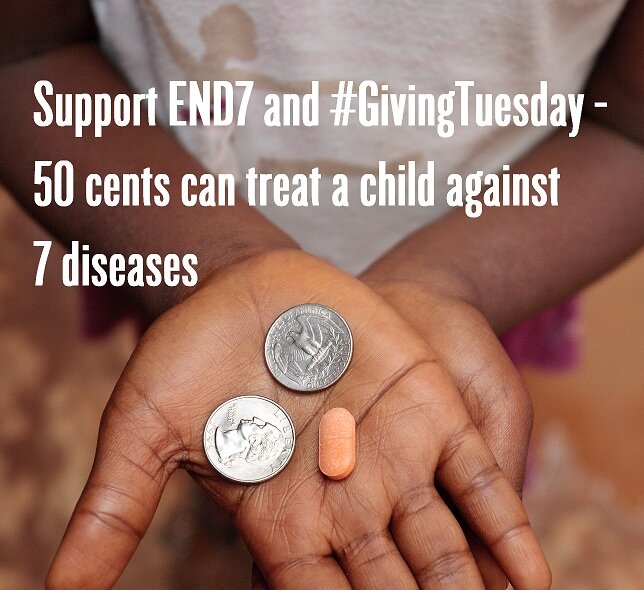As 2013 comes to a close, we have reason to celebrate. END7 supporters helped treat entire communities of people suffering from neglected tropical diseases (NTDs) in Honduras, Myanmar, and Kenya, and our partners have completed treatment programs for millions of people in other countries. We’re making progress in the fight against NTDs.
The hundreds of thousands of children, mothers, families and communities who benefit from NTD treatment motivate us to continue the fight; mothers like Alice who pray every day for the health of their families, and sisters like Neema who want to be healthy and free of parasites so they can play and learn with their siblings.
Watch our new video to see the people who are benefitting from our work. We want to say thank you for making a difference in their lives.
The effort to end NTDs includes a diverse group of global partners, including the World Health Organization (WHO), national governments, pharmaceutical companies, corporations and individuals. Just this year, world leaders took notice and stood up for the 1.4 billion people suffering from NTDs. The World Health Assembly, the African Union and the Organization of America States all made commitments to end NTDs. Governments across the world made national plans to end NTDs within their own countries — and when so many END7 supporters spoke out on behalf of those suffering from NTDs, the United Nations responded with a letter stating that the fight against NTDs is “paramount to the global efforts to eradicate poverty.”
We’ve come a long way, but we can do even more in 2014 with your help. We’re ready to expand our efforts next year and reach even more communities in more countries. Your donations help deliver medicine to hard to reach places, train healthcare workers to administer treatment, educate people about NTDs, prepare for annual pill distributions and help communities take ownership of their own treatment programs.
If we want to improve the health of the most marginalized communities, enhance economic performance and contribute to broader development goals, we need to press on in the fight against NTDs. Will you stand with us? Donate, or start your own campaign to amplify our efforts and improve the lives of those who need it most.


